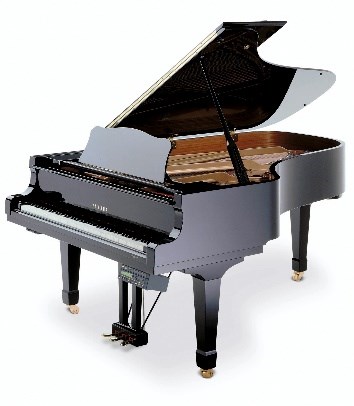 Print your lesson notes: They are what your teacher is going to ask to hear at the lesson, and your goal is to perform those elements without hesitation. You will also need a metronome and a pencil. Wear comfortable clothes, we’re athletes. Swing your arms in a self-hugging motion, then do arm windmills. Stretch by touching toes with floppy arms and head. Slowly come back upright. Finish off with a few jumping jacks. [GREAT TIP: Do this often during the practice period. It keeps you refreshed.] Notice your start time, because you are going to log your minutes.
Print your lesson notes: They are what your teacher is going to ask to hear at the lesson, and your goal is to perform those elements without hesitation. You will also need a metronome and a pencil. Wear comfortable clothes, we’re athletes. Swing your arms in a self-hugging motion, then do arm windmills. Stretch by touching toes with floppy arms and head. Slowly come back upright. Finish off with a few jumping jacks. [GREAT TIP: Do this often during the practice period. It keeps you refreshed.] Notice your start time, because you are going to log your minutes.
Start with the warmups paying close attention to seating posture and relaxation, and use good technique.
Next move on to learning new sections of repertory. Lay a perfect foundation:
- Choose a small section
- Say the notes of the section
- Analyze keys, time signature, chords, scale passages and intervals
- Writing fingering, try it out
- Write in counting
- Tap and count the rhythm
- Decide on the character of the passage, or story
- Play the section HA and HT.
Most people don’t do this much and would stop here. But you are stronger: Repeat the section from 7 different angles, MINDFULLY, no false starts or mistakes. Take pencil notes where needed to save yourself from missing things. [GREAT TIP: If a small part in your section that is particularly sticky, play it in many different octaves.]
- Memorize it. Don't use the pedal at first. Listen for correct note lengths and lift on time for rests
- Play it slowly legato with the MM on
- Play all notes staccato, MM on medium
- Play it swing (a triplet rhythm would take on the run pony) Especially trains HT coordination
- Play it reverse swing (a triplet rhythm would take on the lollipop rhythm) and you may choose other rhythmical variations as well
- Play it at tempo, MM with counting aloud, adding pedal where applicable. OR if it's a technical exercise like a scale, do it with your eyes shut at this point.
- Practice it cold (later) at a different time to test the THOUGHTS first. Keep a log of what sections you have practiced that week so step 7 is relevant.
[GREAT TIP: When reviewing: Remind yourself of what was tricky yesterday before performing it so you get it right first try.] SO IMPORTANT: Do a daily review of past work to build on foundations laid, or else your past work will fade, wasting time. Be efficient and build on past learning. Test your performances, even if just in sections, for your videocamera, for your family, for your grandfather on Zoom. Take notes on what to improve. Notice your end time and log your minutes in mymusicstaff.